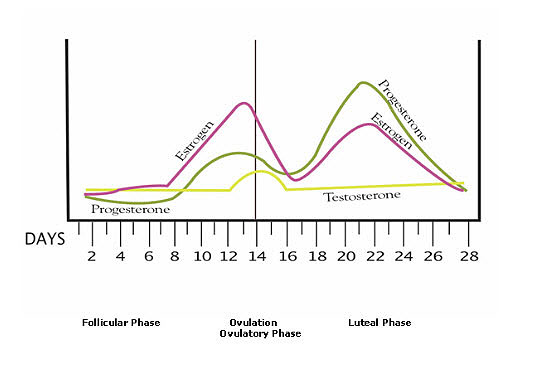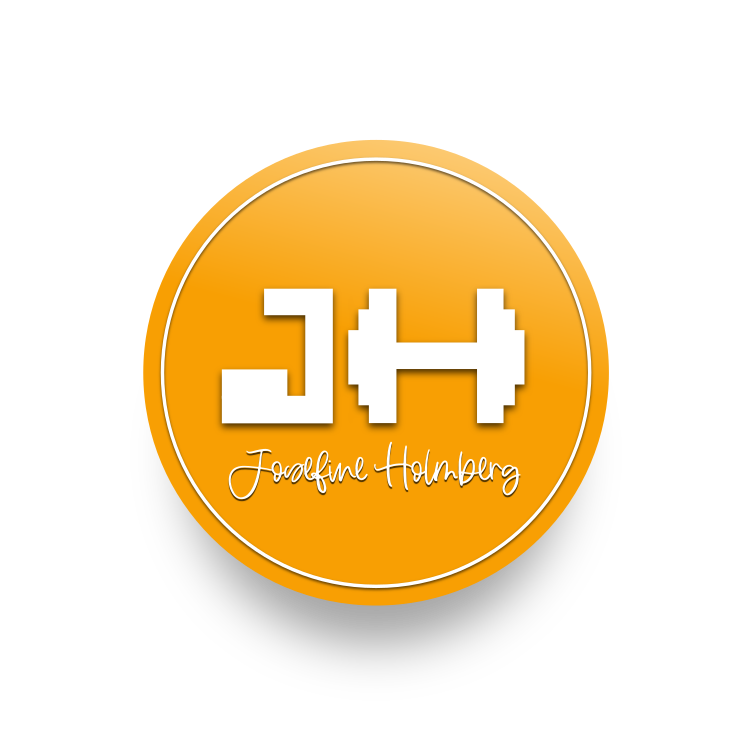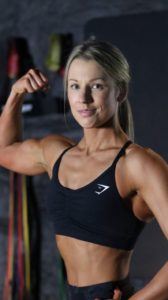The Female Boss Body
The female body is extremely interesting and how it works is far from simple. Of course, a male body is extremely complex as well BUT due to our hormonal fluctuations as women throughout the month, and over the years of our life, our bodies are more complex than a man’s. That’s also why a lot of research is actually done on men.
I have been thinking about all this a lot lately and my goal is to learn how I can work to optimize my body to feel my best throughout the month and throughout my life. I want to find ways to use this and take advantage of the fact that my hormones are shifting and changing throughout the month and my lifetime. It’s far from easy to learn all about it and there is still not much research out there. Nothing is impossible so I’ll try my best to figure things out around this subject.
One thing that I have realized more and more lately is the fact that the 4-5 days before my period starts I do get a lot of cravings, I’m more hungry than normal and I just want to eat until I’m stuffed and when I say stuffed I mean STUFFED! My belly looks like I’m 9 months pregnant and about to give birth, (Maybe not really, but almost!). I also crave things constantly and I can’t think about anything else other than food. Everything in my head is about when and what I will eat next. I will have to give it some time and write and explore this a little more in order to see a pattern. Do I have any women who can relate?
So what are some things that I want to research and look into.
The questions I ask myself here is:
- Does my body actually need more food?
- Am I lacking something that my body craves?
- If I did eat that thing my body might lack, would the cravings go away?
- Is it okay to give in to your cravings during these days or should I hold off?
So first of all, let’s make the phases of the menstrual cycle clear.
The four main phases of the menstrual cycle are:
Menstruation – Menstruation is the elimination of the thickened lining of the uterus
The follicular phase – Starts on the first day of menstruation and ends with ovulation.
Ovulation – This usually occurs mid-cycle, around two weeks or so before menstruation starts.
The luteal phase – During this time we start to release progesterone, along with small amounts of estrogen. When the progesterone levels drop, the lining of the uterus falls away and causes the menstruation – The cycle repeats
In my head the hormones were high during one of the phases and low during the other one, but apparently, it’s not that simple and straightforward. During the follicular phase we have our highest peak of estrogen and during the luteal phase our highest peak of progesterone. So let me try to give you a breakdown on the days, and I will also include a chart.
Low Hormone phase – Between day 28 and 8, progesterone and estrogen is at its lowest and it also drops right after ovulation.
High Hormone phase – From day 8 to 13 and 18 to 22 estrogen and progesterone is rising with estrogen at its peak around day 13 and progesterone at its peak around day 21.

PMS or premenstrual syndrome is something that about 90% of women experience one to two weeks before their period. So you are far from alone with cravings, wanting to eat all the sweets you can find, mood swings, headaches, bloating etc. Apparently, you are more likely to experience PMS in your 30s so I guess that explains a whole lot (I will turn 30 this year) and I feel like I’m experiencing it more than ever before.
What is PMS?
This is how they explain PMS – Premenstrual symptoms at womenshealth.gov – “PMS is a combination of physical and emotional symptoms that many women get after ovulation and before the start of their menstrual period. Researchers think that PMS happens in the days after ovulation because estrogen and progesterone levels begin falling dramatically if you are not pregnant. PMS symptoms go away within a few days after a woman’s period starts as hormone levels begin rising again.”
It is interesting to read about how the drop in hormones can affect our mood and state of mind so much. I also see a huge opportunity in trying to somehow control this? The question is if it is possible, or is being aware of it the only option? What if we can actually naturally increase the progesterone and estrogen levels with foods as they are dropping due to the menstrual cycle? What if we can avoid all the feelings we might experience?
Natural progesterone foods
Foods don’t necessarily contain progesterone, but some foods may help stimulate the body’s production of progesterone. These include:
Beans
Broccoli
Brussels sprouts
Cabbage
Cauliflower
Kale
Nuts
Pumpkin
Spinach
Whole grains
Vitamins & Minerals that boosts progesterone – Read More Here
Zinc
Vitamin B6
Magnesium
Vitamin C
L-Arginine
Ashwagandha
Our Happy Hormones
Progesterone and estrogen are two happy hormones but we have three more main happy hormones that we can boost which are dopamine, oxytocin and serotonin. Some ways to naturally boost them mentioned by Dr Susan Biali are:
1. Stress less – incorporate things like yoga, meditation, or other activities that reduce stress for you. Also eating well in order to increase progesterone levels is important.
- Music – Listen to music you love will make you feel better.
- Spend time with loved ones – Hugs and cuddles are more powerful than you think. Connecting with other humans is so important.
- Eat carbs – carbs increase serotonin levels but try to always choose carbs that are healthy and high in fiber such as quinoa and whole grain bread.
As you can tell from this which is only a small part of everything that is out there in regards to the female body and how it functions, it is very complex but yet so interesting. Let’s keep working on optimizing our boss bodies ladies and to feel our best.
I’m on a mission to feel great for years to come. Stay tuned on even more info on this!
LOVE,
Josefine





